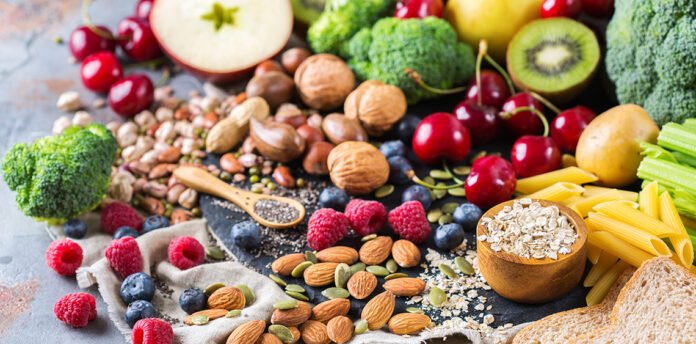A vitamin is an organic compound and a crucial nutrient that our bodies need for growth, development, and maintenance. Each performs different functions in the body.
Fat soluble vitamin
Table of Contents
Fat soluble vitamins are essential for human health. These nutrients are only able to be absorbed and stored by the body when they are consumed with dietary fat. This means that if you are trying to get the most out of your vitamins, it is important to include a healthy amount of fat in your meal. There are a few different types of fat soluble vitamins, each with their own unique set of benefits.
Water soluble vitamins
Water soluble vitamins are mainly responsible for energy production and aiding in the function of other organs, while fat soluble vitamins aid in absorption of food, maintaining healthy skin and hair, and helping to regulate hormones. Despite their importance, many people do not get enough vitamins from their diets. This can lead to health problems down the road. Ensuring you are getting your recommended daily allowance of vitamins is essential for maintaining good health. There are many ways to do this, including eating a balanced diet rich in fruits and vegetables.
Vitamin D
There is an abundance of research on the importance of vitamin D for optimal health. Vitamin D is essential for strong bones and teeth, regulating blood sugar levels, and maintaining a healthy immune system. Unfortunately, many people are not getting enough vitamin D due to their busy lifestyles or lack of knowledge about the importance of this nutrient. In this blog post, we will explore the benefits of vitamin D and share tips on how to get enough of this essential vitamin.
Source
As the days grow shorter and the weather turns cooler, many people find themselves reaching for their vitamins D supplements. This essential nutrient is important for maintaining bone health, fighting off infection, and supporting a healthy immune system. But where do you get your Vitamin D? And how much is enough? Here’s what you need to know.
Deficiency
Most people know that Vitamin D is important for bone health, but few are aware of its other health benefits. Deficiency of Vitamin D has been linked to a wide range of health problems, including cancer, heart disease, and diabetes. Fortunately, getting enough Vitamin D is easy with a little sun exposure and supplementation. Here we will discuss the latest research on the health effects of Vitamin D deficiency and how to get enough of this essential nutrient.
Vitamin A
Vitamin A is a water soluble vitamins that is essential for human health. The benefits of vitamin A include the promotion of good vision, healthy skin, and strong immune system. Vitamin A is also important for pregnant women and their unborn children, as it helps to form the neural tube and promote healthy eye development. In addition to these benefits, consuming foods high in vitamin A can help protect against cancer and heart disease.
Source
It’s not just found in animal products such as meat and liver. In fact, many plant-based foods contain this important nutrient.
Deficiency
Lack of vitamin A can lead to various health problems. This deficiency is often found in developing countries where people do not have access to a varied and healthy diet. The good news is that this problem can be easily fixed by adding more vitamins A rich foods to your diet or taking supplements.
Vitamin C
It’s a wonder supplement that can do everything from boosting your immune system to helping you lose weight. Most people know that vitamin C is important for a healthy immune system, but what many don’t know is the full extent of its benefits. It plays a role in collagen production, tissue repair, and preventing chronic diseases.
Source
The most nutritious include citrus fruits, bell peppers (a type of chili pepper), strawberries, tomatoes cruciferous veggies like broccoli cauliflower or Brussels sprouts white potatoes.
Extensive studies have been conducted on this important vitamin showing how it can help fight various types diseases such as cancer by acting directly against genes associated with these ailments!
Deficiency
Vitamin C is an essential nutrient that is necessary for human health. A deficiency of vitamin C can cause a number of health problems, including scurvy. Scurvy is a serious condition that can lead to death if not treated. Vitamin C is found in a variety of foods, including fruits and vegetables. It can also be taken as a supplement. Anyone who does not get enough vitamin C from their diet should consider taking a supplement.
Vitamin K
Vitamin K is an important nutrient that is often overlooked. This vitamin helps the blood to clot properly, and it is also essential for strong bones. There are different forms of vitamin K, and each one has its own set of benefits.
With so many sources of vitamin deficiency, it can be difficult to get the right amount. One way is through supplements – but if you’re looking for a more natural solution, there are plenty of foods that offer vitamin benefits. Citrus fruits like oranges and grapefruit contain Vitamin C; leafy greens such as spinach and kale have beta-carotene which converts into Vitamin A in your body; potatoes are an excellent source of potassium with over 400mg per medium potato. In order to determine what’s best for you, consult your doctor or nutritionist about how much vitamins you need each day.


